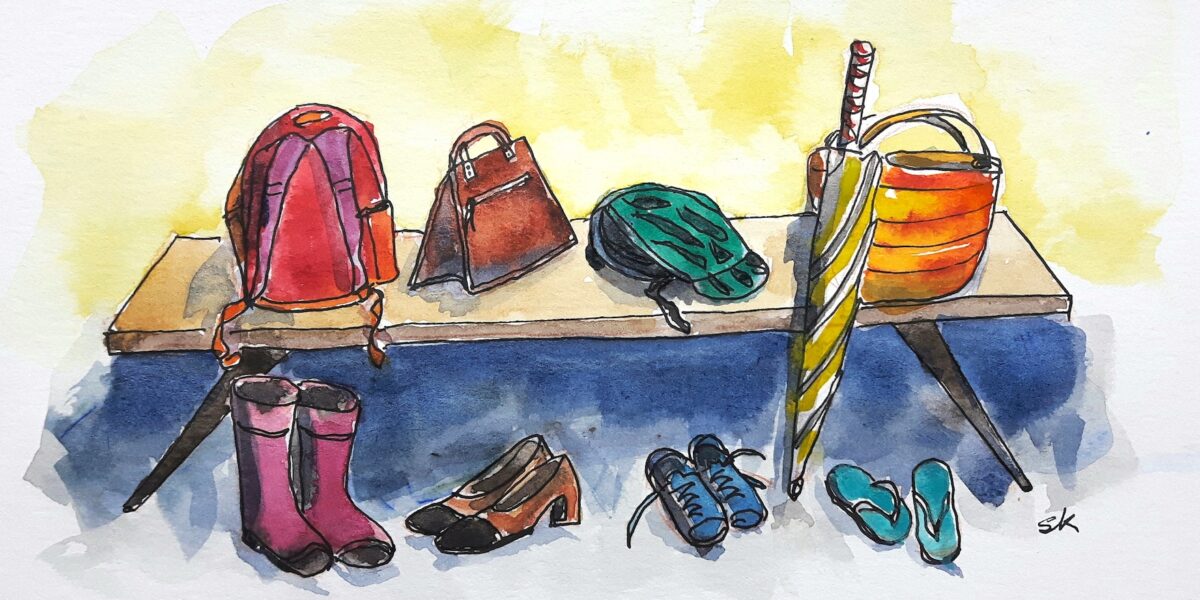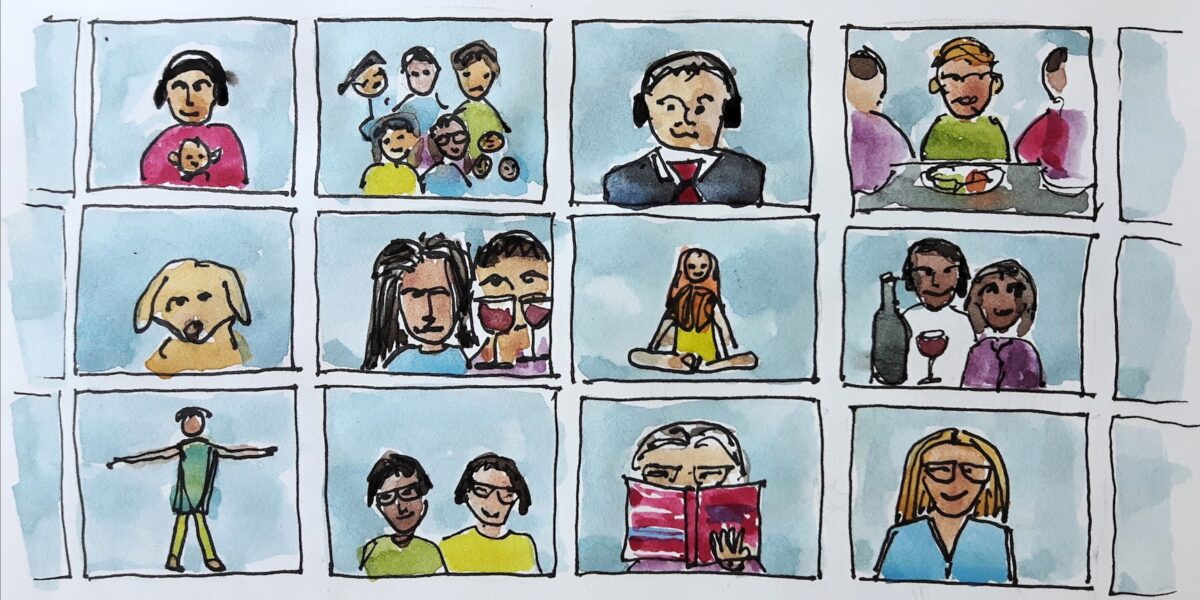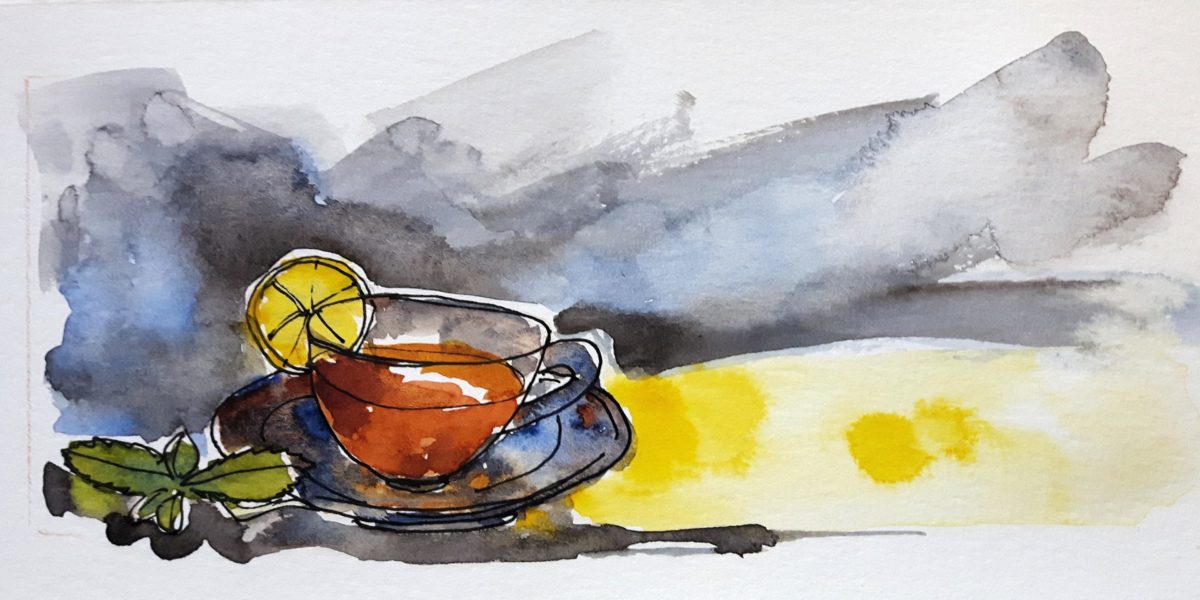“Midlife is when the universe gently places her hands upon your shoulders, pulls you close, and whispers in your ear: I’m not screwing around, you’re halfway to dead, now – use all the gifts you’ve been given!”
– Dr Brene Brown
In conversation with Tim Ferris, The Tim Ferris Show, Episode 656, January 2020.
By the time I’ll have properly shut up shop by August 2024, it would’ve been a career spanning 18 and a half years. It’s fair to say I’ve never done any other one thing for this long!
My coaching practice/business has been successful, I think. But how do you define success?
Indulge me – would you? – in a little trip down memory lane, a pre-emptive epilogue to this book of my career, if you will. It is the longest and most successful career I’ve had, after all. I write this in the hope that one day my daughters may be interested in this period of my life, and how they fitted into it all. Maybe they will or won’t, but I’ve a personal need to reflect and express myself anyway.
When I look back at starting my business in 2006, I’m not sure if it’s with a state of wonder or cringe-worthiness. It would be easy to label myself as arrogant when I look back: I really did “take the bull by the horns” in my engagement in what might be termed (and I hate this phrase) “guerilla marketing.” Those were the days before social media, and when “life coaching” was less of a buzz and more of an uncertain, emerging profession. My approach then would be considered old-skool now: there was no hiding behind a keyboard in 2006. My 27 year-old self physically flung herself in front of anyone and everyone who would grant me the grace of their attention, even if it were only for five minutes (think: morning teas brought to busy GP practices, attempting to give “presentations” to doctors who merely swooped in to grab a muffin (bakery-bought, not supermarket, my desire to represent my services as “high quality” was present right from the beginning). Although most were skeptical, some took a chance on me, which ultimately got paying clients through the door. The rest was the word-of-mouth dynamic – the “gold standard” of marketing – which only works if you focus on being REALLY GOOD at what you do (which I did).
I started with no experience in private practice. I was, however, inspired, brazen, brave, and desperate (desperate) for income, having exhausted every cent I’d had on my NLP/coach training. I still remember the old shoes and skirt I wore to my very first session with a paying client (it’s not an ensemble I would wear now).
I started with no experience but with a good grounding in ethics, gained through two assistant psychologist positions I’d held in London as a young psych-grad (one I loved; one I hated). I was lucky as this set me in good stead for running a busy private practice and all the dilemmas that come with that. I ended up presenting to the members of the NZANLP on ethics in private practice a few years later (not the most popular subject, but a necessary one).
Within six months I was able to ditch the old shoes and skirt and celebrated letting go of my (shitty) part-time job and being able to support myself with full-time income as a coach and therapist. At only 27 years old, I was way beyond many of my peers. I designed and delivered a marketing workshop for emerging coaches and ran it for a few years.
Fast forward 18 months. My biggest success was coming, which turned out to be my biggest failure, too.
I wrote an article about two of my lovely clients who’d respectively solved their chronic and debilitating insomnia issues in just one session with me. This was published in the mainstream women’s magazine, NEXT. I was subsequently interviewed on TV One’s Breakfast show about my methods for solving sleep problems. What followed could never have been predicted or planned for, but with the benefit of hindsight I would do things SO DIFFERENTLY….
Things EXPLODED: every man, woman and their dog in New Zealand, Australia (and some from Europe) wanted to solve their debilitating sleep problems too – “just like the article”. Although this may appear to be a great result, for a 29 year old sole-practitioner with no infrastructure set up to cope with the demand, it was not. I became so pressured and stressed that I, myself, lost my own sleep (the irony has never been lost on me). The upshot of it was that I provided my colleagues around the country a shitload of business, hired myself an associate and a PA, and never had to do any active marketing ever again, remaining true to this day.
The seeming marketing “success strategy” was replicated by some, never to yield the same results. I was plagerised by other, less ethical practitioners. It may have launched me into slight fame and iconic-status among the niche group that shared my career choice at the time, but left my own nervous system shot and propelled me into my first spell of burnout. (Lesson Number One….)
Since this watershed moment of my career, I’ve gone onto publish an eBook on Amazon, loved doing a weekly radio show on community Access Radio, and did a big Trauma Recovery Mission to Samoa with a crew, following the 2009 earthquake and Tsunami, which got coverage on Radio New Zealand. I’ve survived two major burnouts, two successful pregnancies (and one lost one), two bouts of debilitating postnatal mental-illness, two periods of extended maternity leave. I met a man, bought a house, got married, had children and kept my career going among it all. I’ve had two major business re-brands and designed and delivered a complete online course (The Inner Critic to Inner Coach process), plus – one of my favourite things – I created a podcast! If I hadn’t been heavily pregnant and about to be on a lengthy period of maternity leave, this would have been a great joy to continue.
I’ve delivered talks and workshops on all aspects of personal development, my biggest in-person audience being 100 very enthusiastic people. Back in the day, I diligently wrote one blog a week and sent a monthly newsletter, even when I was in full-time employment in government (I’ve always loved the writing). My newsletter and blog achieved readership rates way above the industry standards. I have kept my archive.
I also had two years (i’m seeing pattern of twos) working as an employee in two government organisations, during which I achieved some very cool things in Organisational Development working as a Lead Coach, including setting up in-house coaching for leaders and training and supervising a team of in-house leadership coaches. I’ve spent my last two (!) years very happily and comfortably working with some absolutely lovely 1:1 clients (whom I adore and am achieving great things with). I’ve enjoyed the balance of keeping my practice small, and fitting it in nicely around my commitments at Playcentre, raising my two children, general housewifery, and – my other passion – living a community-centred life.
I’ve invested in SO MUCH professional and personal development across the years! (Did you know I’m a fully trained hypnotherapist?). More recently having trained in the best therapeutic trauma-revovery tool I’ve ever come across (and one of the best things I’ve learned to help my own children). I’ve been lucky to have learned from some very talented supervisors, one of which I had for a decade, and who still very much helps me inside my head often.
It’s fair to say I’ve helped thousands and thousands of people over the nearly-two decades I’ve been doing this work. (Back in the day, I saw over 25 people per week one-to-one, and more than once reached the coveted “six figure salary” that the modern-day coaches seem to be seeking.) My practice has been like a loyal and inspiring friend, always there for me, always working well. It’s been part of my identity, and I’ve been a part of its. And by “it”, of course, I mean YOU! You’ve served me, and I’ve served you. It’s been challenging, comforting, overwhelming, inspiring, difficult, easy, rewarding, the privilege of a lifetime!
And now – it’s time for a change. It’s not been a straightforward decision, but a crystal clear one nonetheless, and it’s an exciting time ahead.
I’ll ALWAYS be a self-development geek – I saturate myself in books and podcasts every week. I still have such a fascination with human potential and the development of mastery. I’ll be committed to, and inspired by my existing clients right up until the end.
To every single person who’s been a part of my journey, I’m grateful to you. You’ve taught me something, and I very much hope I’ve taught you something, too.
Peace out.
Love,
Charlotte Schuckard (nee Hinksman).
Life & Leadership Coach 2006 – 2024.
P.S. My website and online course will close down in March 2024. I’m seeing 1:1 clients until approximately beginning August 2024.





